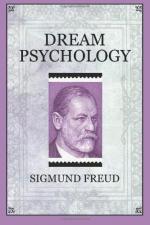The above qualification—in so far as the two wishes are compatible with each other—contains a suggestion that there may be cases in which the function of the dream suffers shipwreck. The dream process is in the first instance admitted as a wish-fulfillment of the unconscious, but if this tentative wish-fulfillment disturbs the foreconscious to such an extent that the latter can no longer maintain its rest, the dream then breaks the compromise and fails to perform the second part of its task. It is then at once broken off, and replaced by complete wakefulness. Here, too, it is not really the fault of the dream, if, while ordinarily the guardian of sleep, it is here compelled to appear as the disturber of sleep, nor should this cause us to entertain any doubts as to its efficacy. This is not the only case in the organism in which an otherwise efficacious arrangement became inefficacious and disturbing as soon as some element is changed in the conditions of its origin; the disturbance then serves at least the new purpose of announcing the change, and calling into play against it the means of adjustment of the organism. In this connection, I naturally bear in mind the case of the anxiety dream, and in order not to have the appearance of trying to exclude this testimony against the theory of wish-fulfillment wherever I encounter it, I will attempt an explanation of the anxiety dream, at least offering some suggestions.




